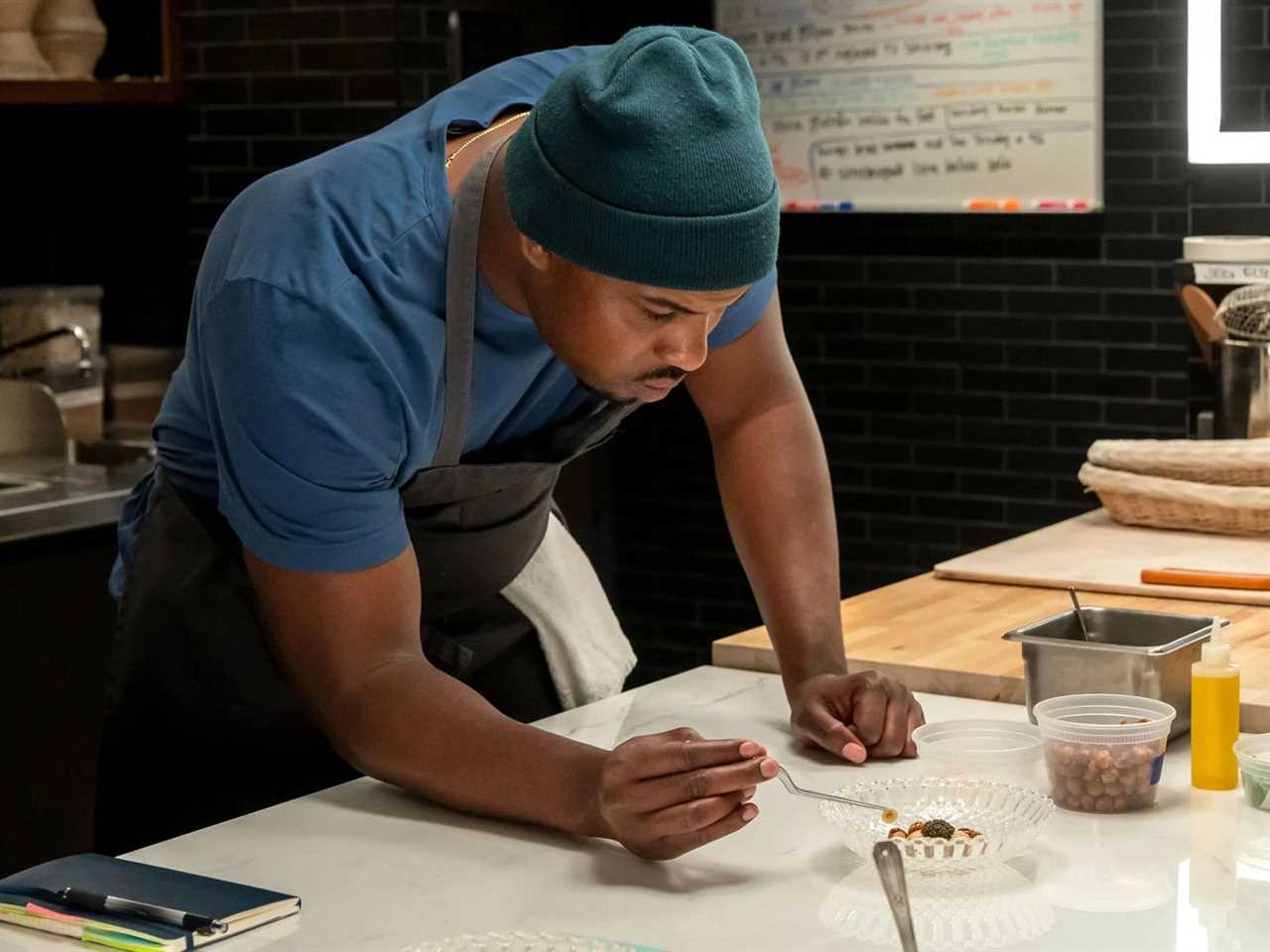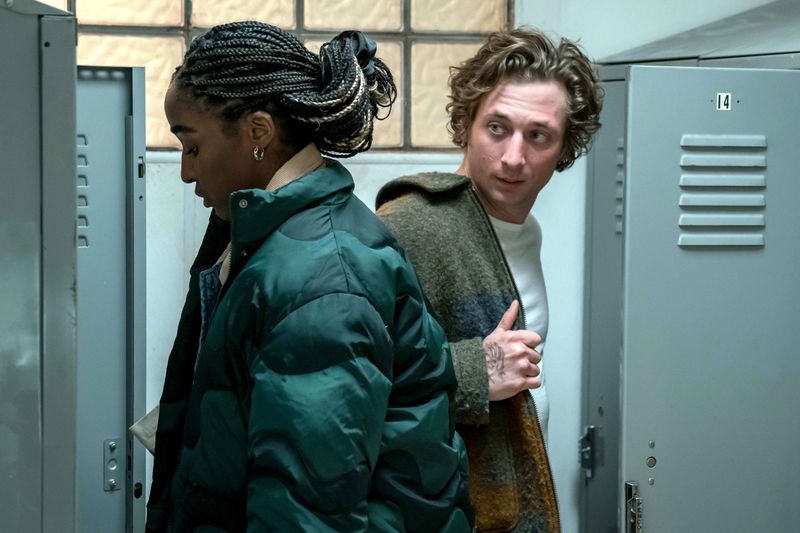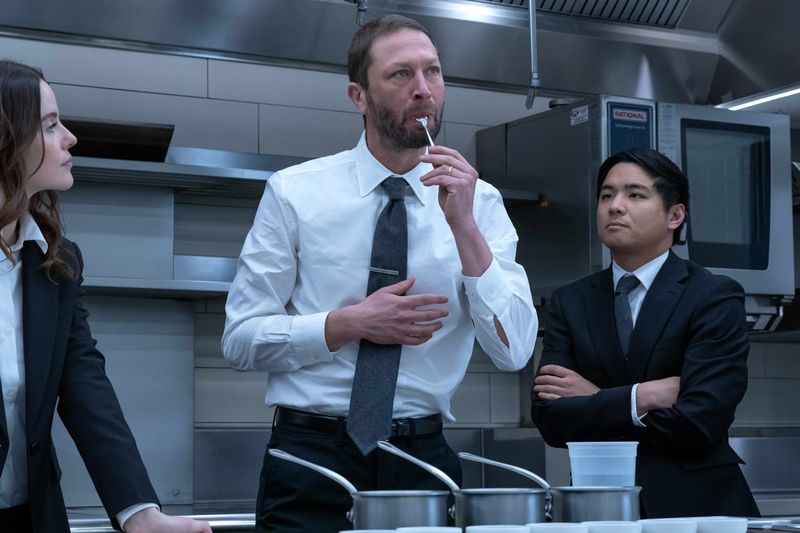
The Bear is a show about opening a restaurant. It’s also a fantasy about nourishing talent.
For a show incredibly concerned with the reality of restaurant kitchens — the heat, the stress, the yelling, the emotions — The Bear is ultimately a fantasy, and that’s all the more clear in season two.
The first season, which found fiercely talented young chef Carmen “Carmy” Berzatto (Jeremy Allen White) in his hometown of Chicago running his recently deceased brother Michael’s (Jon Bernthal) sandwich shop, was sweaty, dirty, shouty, and as Helen Rosner wrote for the New Yorker, something of a fairy tale. Thanks to the gorgeously frenetic directing style that matches the show’s substance, we followed along as Carmy navigated everything from balancing a severely mismanaged budget to teaching a fine-dining mentality to his skeptical crew (including his “cousin” Richie (Ebon Moss-Bachrach)). After those trials, however, the season ended with a deus ex machina: Before his suicide, Michael had hidden hundreds of thousands of dollars in tomato cans, saving the shop and allowing his skilled younger brother to open the high-end restaurant of his dreams.
In its second season, The Bear — also the name of the coming restaurant — is ready to tackle that challenge, and the show has unfurled into something bigger, better, more satisfying than its intricate collaboration of style and substance. If the first season poses the question of what an ambitious, dedicated, and inspired team can do with enough money, the second season has a touching answer: nurture their talent.
Early on, Sydney (Ayo Edebiri), Carmy’s second in command, is in a rut. Opening the restaurant that they want to open is all she’s ever dreamed of. But the freedom comes with the duress of delivering a menu that’s as good as they want it to be. For both chefs, but especially Sydney, that means food that will earn a Michelin star. She blows Carmy’s palate with food that’s too salty; he throws it up into a paper towel. She tries again. He spits it out again. Closer but not there. They need a reset, he declares. Then he tells her to just go eat. She follows orders, making her way through Chicago’s best restaurants — starting with a breakfast sandwich at Kasama (Tagalog for togetherness) and visiting the city’s lauded eateries like Avec, Margie’s Candies, Pizza Lobo, and Publican Quality Meats) — before gathering her wits and attempting a ravioli dish.

The Bear/FX
She ends up hating what she made, but not before exemplifying the show’s sly second-season credo: a compassionate daydream where nothing is more important than nourishing the staff’s gifts. From Marcus’s (Lionel Boyce) trip to Copenhagen to Richie’s entry into the world of staging to the joy in Tina (Liza Colón-Zayas)’s smile when Syd makes her her sous chef, The Bear never wavers from its conviction that talent and inspiration are precious. While there might be stress about exactly how much to spend on plates or how to pass the fire safety test, there’s never a question about if it’s worth it to make these people better at what they love to do.
Approaching the idea of (troubled) genius isn’t foreign territory to The Bear. The show has tackled it before, mainly in the context of how skill and aptitude go hand in hand with upward trajectory. Carmy is so gifted that he finds freedom from his messy family life to work at one of the best restaurants in the country. His brilliance gives him escape, however briefly. Carmy’s talent is too big for the sandwich shop he inherits, and season one is about whether or not he can learn how to harness it into this mode of success.
But this season, the show proves that talent is not strictly an individual endeavor. To grow as a person takes a community; a team effort. From Sydney to Marcus to Tina to the famed Chef Terry (Olivia Colman in a glorious cameo), the throughline is that all these remarkable people need or needed people in their lives to nurture their gifts.
That’s evident in the episode “Honeydew,” when Carmy and Sydney want Marcus to up his pastry chef game. Despite the increasing financial strain the restaurant is facing, they decide, without question, to send him on a trip to hone his desserts. The destination is Copenhagen, where he’ll sleep on the same houseboat and feed the invisible cat that Carmy once did, and train under icy and talented pastry chef Luca (Will Poulter), one of Carmy’s cohort.
Luca is firm but shows Marcus how to create wildly punctilious desserts, like a scoop of ice cream so temperamental it needs to be caressed a certain way and a shiso gelée that ultimately ends up in a “minty Snickers bar.” Marcus’s knack for picking up technique impresses Luca enough that he tells Marcus a story about a chef (who may or may not be Carmy) so good that he forced Luca into a bittersweet revelation. On the one hand, Luca realized he’d never be the best, and on the other, this unnamed chef somehow unburdened him from the pressure he was putting on himself, allowing him to be the best he could be. Luca found community in competition and realized that talent isn’t a zero-sum game where someone else’s talent negates your own.
There’s room for everyone; talent inspires and fosters success, and Marcus is part of that circle.
Similarly, the team sends Tina to culinary school. Again, cost doesn’t even come into question. She thrives, relishing the opportunity to improve her skills. In the second season, initially guarded Tina’s hunger for self-improvement is one of her defining characteristics, as is her fierce loyalty to Carmy and Syd. It makes the small moment in episode five, when Carmy lets her bring his knife to culinary school, feel momentous. With Carmy’s confidence and tools, Tina filets her culinary fish confidently, a determined look in her eye as the blade flips through the flesh. The cut is so good her instructor congratulates her.
Even if you’re talented, you need someone to believe in you.

The Bear/FX
The best episode this season has Richie staging a week at the best restaurant in the world in “Forks.” Richie begins by polishing forks. He hates every second of it, convinced this is all some exquisite and unusual punishment. It isn’t until someone points out to Richie that being able to change someone’s day is truly wonderful, that it finally begins to click that he’s watching extreme talent sharpened with extreme discipline.
When he sees how the restaurant’s servers communicate like soldiers speaking in secret code, detailing diners’ stories, lives, eating habits, and allergies, he lights up. Watching Jess (Sarah Ramos) expedite, like a conductor telling their horn section to blow, thrills him. The once reluctant fork-shiner is able to identify the restaurant’s plethora of sauces in a blind taste test.
He’s high on success, on feeling like he’s part of this team. Richie wants to be the best version of himself. Richie wants to work at this restaurant. But that’s not how it all works.
At the end of Richie’s week, he runs into Chef Terry (Colman) cleaning mushrooms, a seemingly menial task. After peeling a couple of mushrooms himself, he takes a moment to apologize, thanking her for doing Carmy a favor. She says that it actually wasn’t a favor or a punishment, but that Carmy told Terry that he believes in Richie and that he’s naturally good at front of house. He doesn’t let her see it, but it warms his heart. She also tells him that it’s never too late to start over, that she crashed and burned and needed a reset too.
A sign in her kitchen reads: “Every second counts.”
It’s an homage from her to her late father, and a message that Richie will never forget. Terry’s story also ties back, again, to the idea of how greatness needs a family or a community to survive. Without her father, without her staff, without the people who helped her, she wouldn’t be the most successful chef in the game.
This idea that people who recognize talent should foster it and help it grow goes both ways. Sydney, Marcus, Tina, Richie, and even Chef Terry are lucky they’ve found someone who believes in them. If you want to grow as a person and hone your craft and what you love, you need to find someone who believes in you. It isn’t a coincidence that Carmy’s biological family is portrayed as an acidic, toxic hindrance to his career, and that the one he’s created for his team — via his network of chefs — is the literal opposite.
Of course, this is all a fantasy.
Bosses don’t usually send their employees to Scandinavia to nourish their souls and ignite their inspiration. A fantasy where our jobs make us better and recognize our brilliance and diligence is even more appealing as we’re living in a reality suffering from burnout and the threat of AI replacement. The restaurant world — as The Bear is keen to show us — is a different universe. And even then, The Bear is more of an exceptional exception and not the norm.
There’s no guarantee that these characters will make good on their talent or that their talent will somehow lead to the success of Carmy’s restaurant. That’s ultimately up to the fickleness of a cruel industry. But I can’t help but hope that it does.
All 10 episodes of The Bear season two are streaming on Hulu.
----------------------------------------
By: Alex Abad-Santos
Title: The Bear’s second season is about the people it takes to make you great
Sourced From: www.vox.com/culture/2023/6/30/23780059/the-bear-season-2-review-carmy-talent
Published Date: Fri, 30 Jun 2023 19:00:00 +0000
Did you miss our previous article...
https://consumernewsnetwork.com/politics-us/wesley-lowery-tackles-an-american-whitelash






